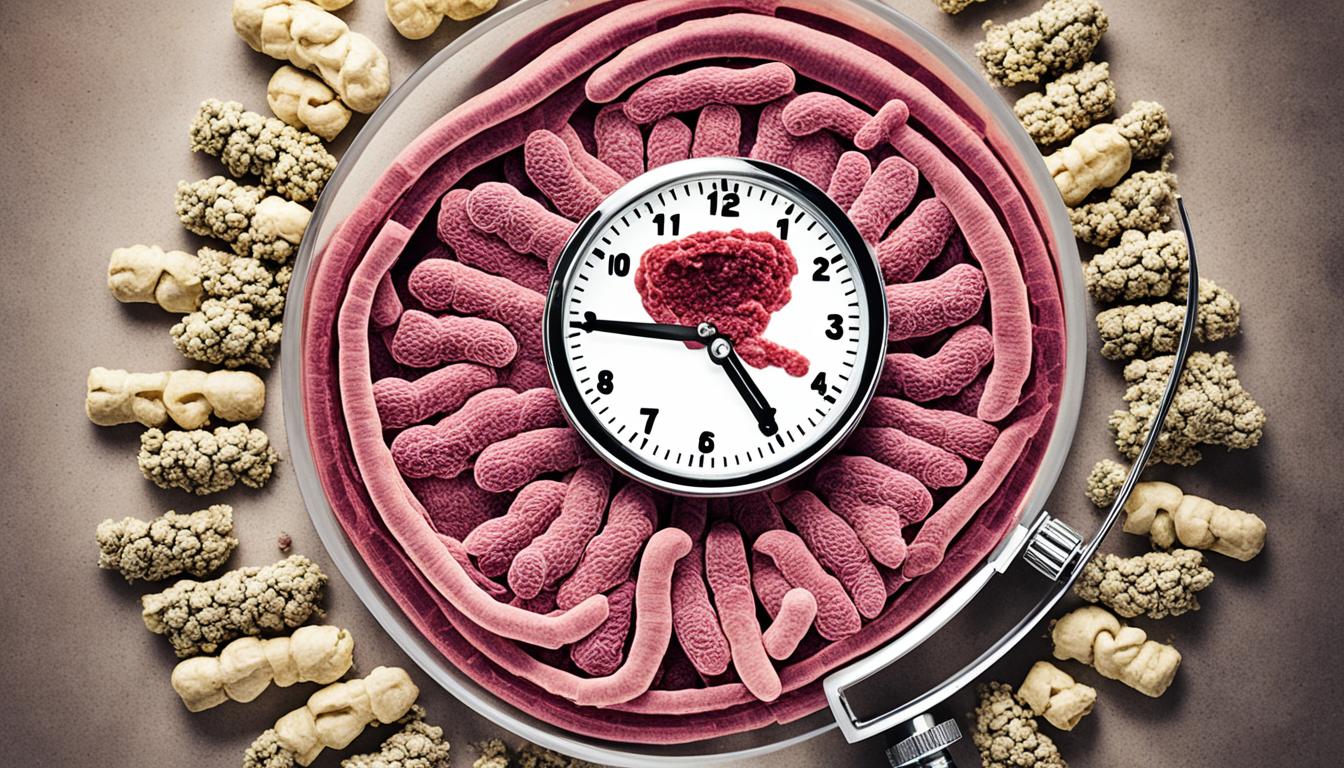Small bowel cancer, or small intestine cancer, is not common. It affects the tissues in the small intestine. These tissues begin to grow out of control and form tumors.
The small intestine is important for soaking up nutrients. Cancer can start in the duodenum, jejunum, or ileum parts of the small intestine.
Different types of small bowel cancer exist. These include adenocarcinoma, sarcoma, GIST, neuroendocrine tumor, and lymphoma.
The exact cause of this cancer isn’t clear. But, illnesses like Crohn’s and genetic problems raise the risk.
Spotting small bowel cancer early is hard because the signs can be vague. But, watch out for blood in stool, diarrhea, or belly pain. Also, losing weight for no reason and throwing up could be signs.
Age, gender, and some genetic diseases make some people more at risk. Also, what you eat and how you live can play a part.
To lower your risk, don’t smoke, cut back on alcohol, and eat well. Get screened if your doctor thinks you might be at risk.
Finding out you have this cancer takes many tests. Doctors use blood tests and scans to get a clear picture.
How they treat small bowel cancer depends on the stage and type. You might need surgery, chemo, or other treatments.
Small bowel cancer is tough, but newer treatments like stem cell therapy offer hope. They can make outcomes better for patients.
Key Takeaways
- Small bowel cancer is a rare disease that affects the tissues in the small intestine.
- It can occur in different parts of the small intestine and has several types, including adenocarcinoma, sarcoma, GIST, neuroendocrine tumor, and lymphoma.
- Common symptoms include blood in the stool, diarrhea, abdominal pain, unexplained weight loss, and vomiting or nausea.
- Prevention strategies include maintaining a healthy lifestyle, avoiding risk factors, and regular screenings for high-risk individuals.
- Treatment options may involve surgery, chemotherapy, immunotherapy, and radiation therapy, with the potential for stem cell therapy as a promising approach.
Characteristics and Management of Small Bowel Tumors
Small bowel tumors are rare, making up 3 to 6% of all GI cancers. They include about 40 types like adenoma, GIST, and neuroendocrine tumors. Diagnosing them is tough because symptoms are often unclear or absent.
Yet, medical imaging has made big strides in finding and categorizing these tumors. Techniques like capsule endoscopy allow doctors to see the small bowel fully.
Along with endoscopic checks, other imaging methods spot tumors more easily. This is key for figuring out the best treatment.
The main treatment for bad tumors or ones causing issues is surgery. Sometimes, medicines help slow down the tumor or ease symptoms.
Tumor type affects the outlook. Most times, malignant tumors mean poor survival chances.
| Subtype | Treatment |
|---|---|
| Adenoma | Endoscopic removal or monitoring |
| Gastrointestinal Stromal Tumor (GIST) | Surgery, targeted therapy (like imatinib) |
| Neuroendocrine Tumor | Surgery, somatostatin analogues, targeted therapy (like everolimus) |
| Lymphoma | Chemo, radiation, immunotherapy |
| Adenocarcinoma | Surgery, chemo, radiation, possibly targeted therapy |
More study and better treatment are crucial for improving lives and survival of those with small bowel tumors.
Conclusion
Small bowel cancer is rare but affects the small intestine’s tissues. It’s hard to diagnose because it doesn’t show specific symptoms. The small bowel is also hard to check thoroughly. However, new techniques are making it easier to detect and understand these tumors.
Right now, surgery is the main way to treat this cancer. But doctors are looking into using stem cells to help patients even more. We need more research and progress to better fight this type of cancer.
This kind of cancer is tough and complex. Yet, with new medical tools and ongoing studies, we can have more hope. We hope for better ways to find, treat, and beat this cancer. This could mean a brighter future for those fighting small bowel cancer.

